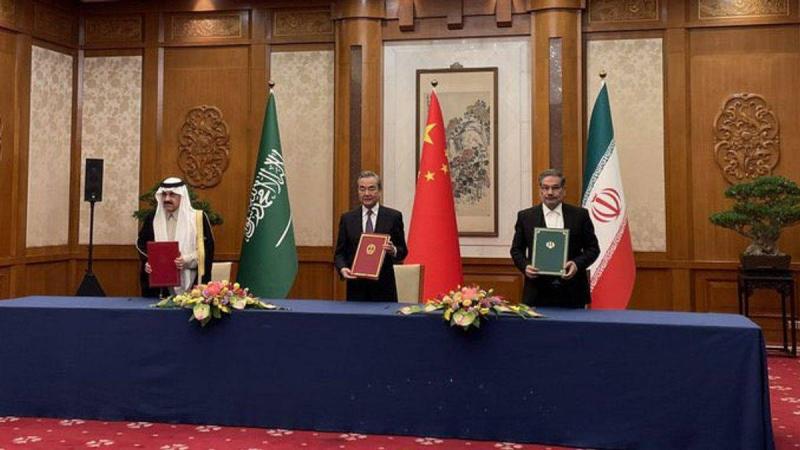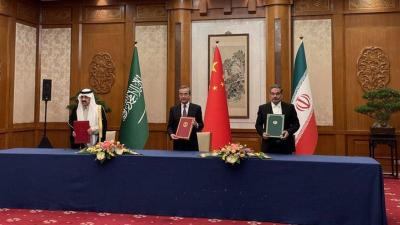In an effort to end its political and economic isolation, Iran has been trying for two years to restore relations with the powerful Arab state of Saudi Arabia, which has significant oil resources. Iranian officials told Reuters that Iranian Supreme Leader Ayatollah Ali Khamenei lost patience in September regarding the slow pace of bilateral talks and summoned his team to discuss ways to expedite the process, leading to China's intervention.
China's discreet role in the successful agreement announced last week has shaken the balance of power in the Middle East, where the United States had long been the main mediator, showcasing its security and diplomatic muscle. An Iranian diplomat involved in the talks stated, "The Chinese showed readiness to help Tehran and Riyadh narrow the gaps and overcome the outstanding issues during talks in Oman and Iraq." The agreement was reached after a seven-year diplomatic freeze. For Saudi Arabia, this could mean security improvements, especially after it accused Iran in 2019 of attacking its oil facilities, which halted half of its crude supplies. Iran denied involvement in the attacks, while the Iranian-aligned Houthi group claimed responsibility.
Saudi Finance Minister Mohammed Al-Jadaan noted that Saudi investments in Iran could happen "very quickly." Saudi Arabia severed relations with Iran in 2016 following the storming of its embassy in Tehran amid escalating tensions between the two nations. The rift has jeopardized stability in the Middle East and has fueled conflicts in the region, including those in Yemen, Syria, and Lebanon.
When asked whether the Saudi-Iranian agreement would be finalized, Wang Yi, a senior Chinese diplomat involved in the talks held in Beijing, told reporters that the rapprochement was a process without expectations that all issues would be resolved overnight. Yang Liu, a correspondent for Xinhua News Agency, tweeted, "The important thing is for both sides to be serious about improving relations."
A Saudi official remarked that the kingdom, the main Arab ally of Washington, began exploring ways to open a dialogue with Iran two years ago in Iraq and Oman. This led to a watershed moment in December when Chinese President Xi Jinping visited Riyadh. In a bilateral meeting with Crown Prince Mohammed bin Salman, Xi expressed a desire to mediate dialogue between Saudi Arabia and Iran. The Saudi official said, "The Crown Prince welcomed this and promised to send a summary of previous rounds of dialogue to the Chinese side, along with a plan on how we think we can resume these talks."
The Iranian agreement covered a range of issues, including security concerns and economic and political matters. An Iranian official commented, "I won't go into details, but we agreed that neither country would be a source of destabilization for the other. Iran will use its influence in the region, particularly in Yemen, to help Riyadh achieve security."
Both sides expressed their commitment to strive to maintain security in the Gulf, ensure the flow of oil, and collaborate on solving regional issues while avoiding military aggression against each other. The Saudi official said, "Iran is the main supplier of weapons, training, ideological programs, propaganda, and expertise to the Houthis, and we are the main victims. Iran can do a lot, and it must do a lot."
A regional source close to Khamenei indicated that Iran chose its senior national security official Ali Shamkhani to lead the negotiations because he belongs to the Arab minority. An Iranian official familiar with the meetings noted, "China was the best option given Iran's loss of trust in Washington and Beijing's friendly relations with both Saudi Arabia and Iran. China will also benefit from a calm Middle East considering its energy needs."
After decades of mistrust, continued friction would not be surprising. An Iranian source close to the decision-making elite in Iran stated, "This agreement does not mean there will be no problems or conflicts between Tehran and Riyadh. It means that whatever happens in the future will be 'under control'."




